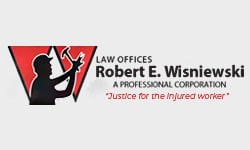Recently, the College of Health Solutions at Arizona State University partnered with the World Economic Forum (WEF) and the Rockefeller Foundation to conduct a global business study about the health of the global workforce due to COVID-19. The study showed that a relatively low number of employers (20%) are regularly testing their employees for COVID-19. Furthermore, the study showed that because of COVID-19, 35% of the businesses surveyed have found it necessary to reduce their workforce permanently.
Twenty-nine countries and 1,125 employers participated in the survey, which primarily lasted 6 weeks from September to October 2020.
While only 20% of employers indicated company-wide testing for their employees,, roughly 74% of employers reported requiring masks while working, with almost 80% actually providing their employees with masks and hand sanitizer.
When this survey was conceptualized, there were 13.2 million cases of COVID-19 worldwide and the death toll had reached 575,000 people. As of November 17, 2020, this number rose by more than 4 times to a staggering 53.7 million infected and 1.3 million dead worldwide.
As of November 17, 2020, Arizona’s total COVID-19 cases had risen to 299,665, with 6,464 deaths.
These figures indicate that it‘s increasingly important for business leaders to make decisions that will allow them to ensure their employees (and thus their own businesses and families) are safe while at work.
Mara Aspinall, a professor of practice for the College of Health Solutions at ASU feels that this survey has the potential to “give us a clearer picture of the many difficult decisions employers face in trying to reduce the spread of the disease — and why more must be done to expand access to rapid-result testing.”
For those interested in reading the full report, you can find it at “Facing Uncertainty: The Challenges of COVID-19 in the Workplace.”
Arizona COVID-19 work practices
Now that we are well into the COVID-19 pandemic, our way of life and how businesses handle everyday situations have evolved. Along with having to be concerned about turning a profit, business owners also have to focus time, energy and resources on ensuring that both their employees, customers and/or clients are able to conduct business safely.
In order to do so, new practices and policies have been implemented in many workplace in Arizona.
Enhanced cleaning practices
Arizona employers—as well as employers around the country—are implementing enhanced cleaning protocols in order to ensure that both their employees and the community they serve are kept as safe as possible.
After Arizona’s March 30th state-wide lockdown (which ended on May 4th), many businesses adjusted to implement new work schedules that allowed for enhanced cleaning measures and to keep employees more socially distanced.
Handling COVID-positive employees
After a positive test (or a potentially positive employee), employers should have clear communication with the employee. The employee should be told to seek medical care and avoid coming to work.
One hiccup in this process is finding the line between being able to protect the privacy of the person infected while providing other employees with the information they need to stay safe. Employers can achieve this balance by gaining permission to share an infected employee’s status on a need-to-know basis as a means of contact tracing.
“COVID taskforce”
The best way to ensure that everyone gets accurate information during such a confusing (and crucial) time is to appoint a single person (or small group of people) to become detailed in all things COVID. If you have a point person where all questions and details should come from, it can cut back on misinformation in the workplace.
Arizona sick leave policy
Arizona state law has a mandatory paid sick leave policy that can be used in conjunction with the emergency COVID-19 sick leave policy issued by the federal government. As of 2017, employers, regardless of company size, are required to give their employees sick leave accrued at 1 hour of sick leave per 30 hours worked. Sadly, many are unaware of this policy.
Vaccinations
For weeks, we’ve been hearing that a vaccine is on the horizon. While there are no concrete dates for when these vaccines could be widely available to the public (at the time of this post) or who will be first in line to receive a vaccine, it’s important for businesses and companies to plan for this eventuality now.
For now, the best course of action is for employers to reach out to their insurance carriers to ensure they’re clear on their requirements as an employer.
Another way to handle the situation is to strongly recommend their employees to consider getting vaccinated. Employers who are serious about having their employees vaccinate should consider covering the cost of the vaccine and/or hiring a nurse practitioner to come to their business to administer the shot to whoever chooses to vaccinate.
COVID-19 and workers’ compensation
Even with all the knowledge we’ve gained about COVID-19 so far, there is still a lot of uncertainty and questions. For example:
What does COVID-19 mean for workers’ compensation? Can those infected with the virus receive compensation from their employer?
The Industrial Commission of Arizona has stated that the organizations that distribute workers’ compensation claims are not permitted to categorically deny COVID-19 claims without justifying their reasoning. Just like any other work injury claim, those submitting claims for COVID-19 infection through the course of their employment must receive a thorough review and investigation, and any subsequent denial must be justified.
Additionally, Governor Doug Ducey also put provisions to expand medical access and benefits for workers, including those seeking workers’ comp benefits, to telemedicine resources.
As COVID-19 is a virus, contracting it at your place of employment would more than likely be defined as an occupational disease or occupational illness. Typically, an occupational disease results from an exposure to a work hazard over a span of time rather than covering situations like contracting an illness. Considering the ease of contraction of COVID-19, many workers have found it difficult to prove that they contracted the virus while at work versus when off-the-clock (such as going to the grocery store or visiting a family member).
That said, Arizona has put policies in place for people in certain industries—essential workers, first responders and healthcare personnel, specifically—to make seeking COVID-19 workers’ comp coverage easier.
In reality, workers’ compensation coverage for employees who contract COVID-19 is likely to come down to your type of employment. Anyone who is considered an essential worker, like those responsible for transporting goods, grocery store workers, teachers, first responders, etc., are more likely to have their workers’ comp claim for a COVID-19 infection accepted.
While we’re definitely living in uncertain times, scenarios like being injured while on the job don’t change. Wash your hands, practice social distancing and be mindful of those around you, and we’ll get through this pandemic together.
If you or a loved one were infected with COVID-19 and you believe that your infection was a result of your employment, contact the Law Offices of Robert E. Wisniewski for your free consultation to discuss your rights.

